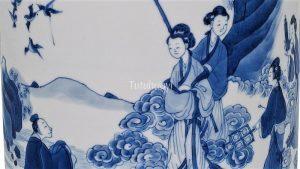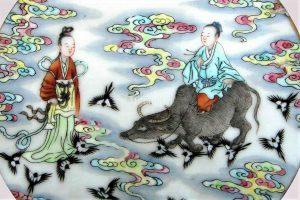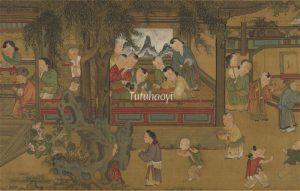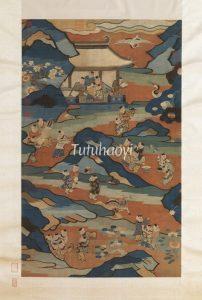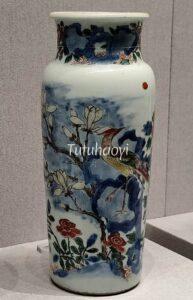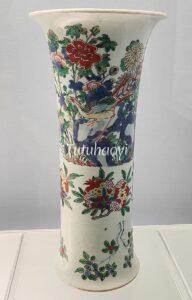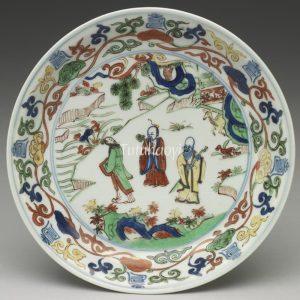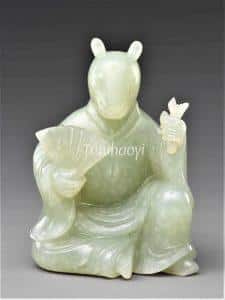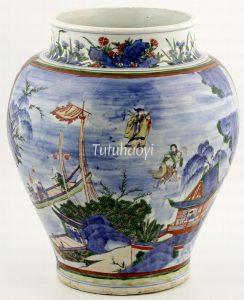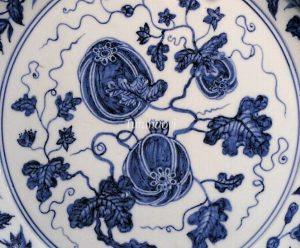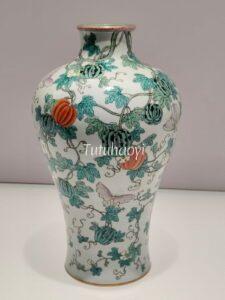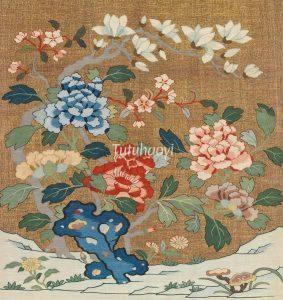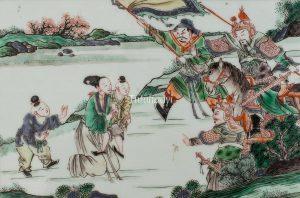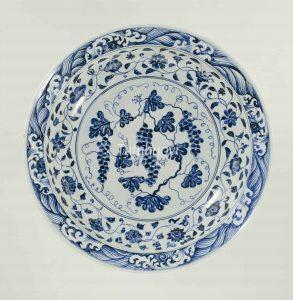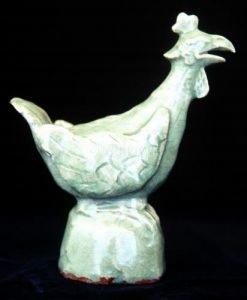Showing Results Containing
The Chinese Valentine’s Day, Qixi Festival (七夕节), is just around the corner. It falls on the seventh day of the seventh month of the traditional Chinese year. Dr Yibin Ni has conducted comprehensive research on this topic and has written an articl...
On the seventh day of the seventh month of the lunar Chinese year, young men and women will celebrate their traditional ‘Valentine’s Day’, Qixi Festival (七夕节). The custom can be traced back to an ancient story.
The Hundred Children motif (百子图) represents the most elaborate and auspicious extension of the broader Children at Play theme in traditional Chinese art. While both mot...
Children at Play is a classical motif in traditional Chinese art, portraying lively scenes of children engaged in games and daily amusements. These depictions often feature children flying kites, kicking balls, turning somersaults, enjoying lanterns, performing lion or dragon dances, tending flowers, pla...
The figures of Three Star Gods are personified representation of Good Fortune, Prosperity, and
In an ancient Chinese book, The Huainanzi (淮南子 The Discourses of the Huainan Masters), compiled around 139 BCE, there was a legendary story about a fairy lady, Continue Reading
The seventh day of the seventh month of the traditional Chinese year is the Chinese ‘Valentine’s Day’, Qixi Festival (七夕节). The custom can be traced back to an ancient story about a weaver girl and a cowherd:
Once upon a time, one of the daughters of the Lord of the Heaven lived on the east side of the Mi...
The Ming-dynasty play The Story of the Blue Robe (青袍记 Qingpao ji, also called《梁氏父子传胪记》) tells the story of how Lv Dongbin (吕洞宾 Lü Dongbin or 吕纯阳), one of the Continue Reading
The phrase ‘gua die mian mian 瓜瓞绵绵’ is a variation of a line from the poem Mian 绵 collected in the section of the Greater Odes of the Kingdom (Daya 大雅) in the Classic of Poetry (Shijing 诗经). It is used as a metaphor for the continuation and flourishing of the family or clan along the m...
The phrase ‘gua die mian mian 瓜瓞绵绵’ is a variation of a line from a poem in the Classic of Poetry, Shijing 诗经, compiled in China during the period between the 11th to 7th centuries BCE, used as a metaphor for the continuation and flourishing of the family or clan along the male lin...
The character ‘yu 玉’ in ‘yulan hua 玉兰花’ for ‘magnolia’ is the same ‘yu 玉’ for ‘jade’. The word ‘tang 棠’ from ‘haitang hua 海棠花’ for ‘crabapple’ is homophonic with the word ‘tang 堂’ for ‘house’. The combination of the two characters ‘yutang 玉堂’ means ‘jade hous...
This is a story of a righteous woman. As the army of the state of Qi (齐国) launched an invasion against the state of Lu (鲁国), soldiers approaching a Lu suburb saw a woman struggling along the road with two children. When the army got closer, she abandoned one of the children and grabbed the other, moving toward the mounta...
Grapes grow in clusters of up to 300 berries each and thus produce an enormous number of seeds. This property was regarded by the ancient Chinese as an apt allusion to their wish for a large number of offspring. That is why grapes are seen adorning various kinds of Chinese antiques, handcrafts, and bric-a-brac, often, to...
‘Dié 蝶’ from hú dié 蝴蝶, the Chinese character for ‘butterfly’, can be used to pun on ‘dié 耋’, meaning ‘octogenarian’ in the phrase ‘Ma...
A large Longquan pottery rooster sculpted on a rock sends good fortune to the receiver’s or owner’s family because da ji 大 鸡 for ‘large rooster’ sounds the sam...
